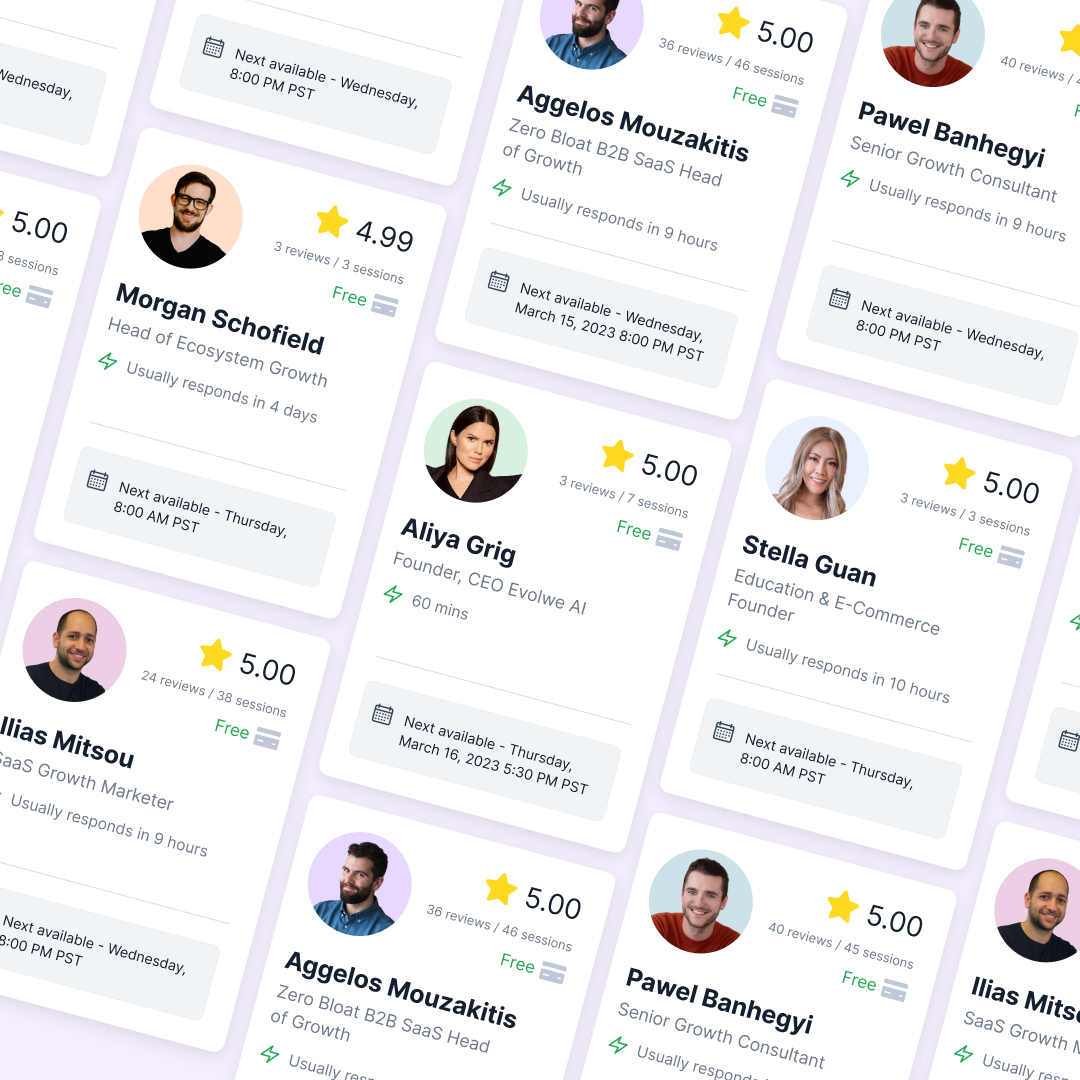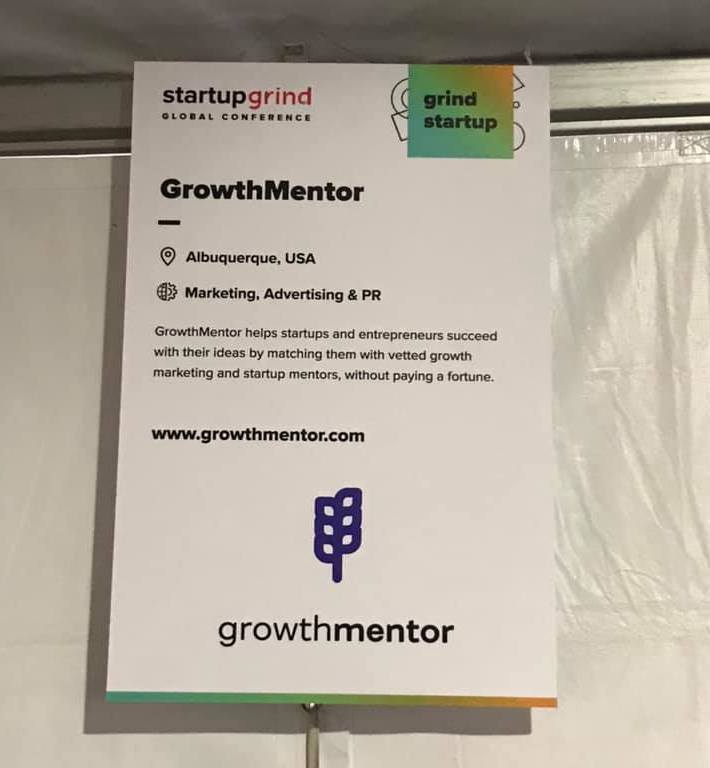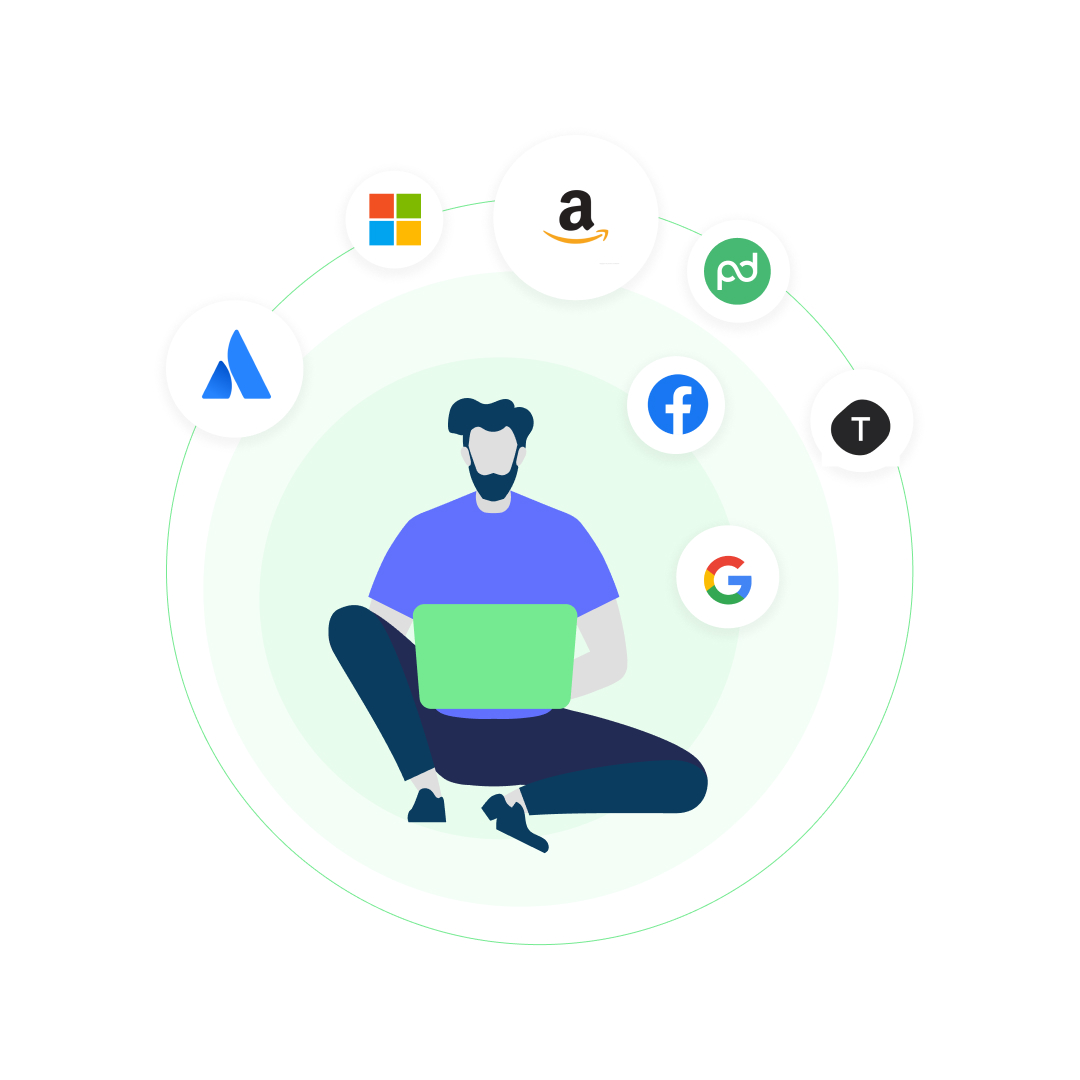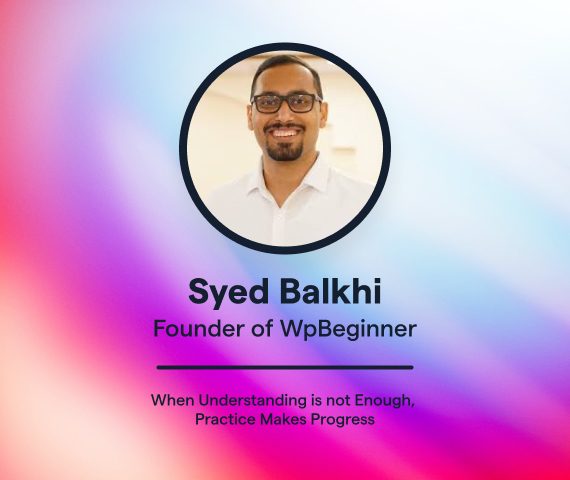Why, When, and How to Join a Startup Mentorship Program
If you’re a startup founder, you’ve probably heard somewhere along the way you need a mentor. Maybe you’ve heard about startup mentorship programs, but you’re not sure if it’s for you.
You’re in the right place. As a mentorship platform that’s matched thousands of mentees to mentors over the years, we know a thing or two about finding the right mentor-mentee fit.
Read on for the real-world take on how to find the right mentor to take you and your startup to the next level.
Why should you join a startup mentorship program?
Having a mentor does come with huge benefits like:
- Saving you time, money, and exasperation through their guidance
- Opening up new networking opportunities
- Helping you upskill in a variety of areas, especially leadership and team building
But, let’s be realistic. Few founders seek out a mentor solely thinking: “I want to expand my network” or “I want to save money.”
Let’s look at the real reasons most founders join a startup mentorship program:
“I’m Stuck”
This is probably the most obvious reason founders look for mentors. When your startup is stuck, it can feel like trying to move a car out of a deep rut. Most of the time, you can’t do it alone.
A mentor can be both the more experienced guide and a clear-eyed, objective voice to give you the advice you need to start moving forward again.
“I Don’t Know What To Do Next”
The uncertainty in the startup world is a killer. It can be so easy to get caught up in analysis paralysis or, on the opposite end of the spectrum, the “throw everything at the wall and see what sticks” approach.
But a mentor can help shine a light on the path ahead. Since they’ve done it before, they’ll know what works and what doesn’t and you can learn from their experiences.
“I Don’t Have Anyone to Talk To”
Being a founder, especially a solo-founder, gets lonely. Even if you brush off the emotional toll, there’s a big consequence for your startup: you don’t have a sounding board.
Sure, if you have a team, they may be able to give their opinions. But they likely suffer the same in-company biases and blind spots you have.
As a pair of outside eyes, a mentor can give you another perspective on your challenges. Not to mention their feedback can be invaluable for bouncing ideas.
“I’ve Never Done This, but I Want to Crush This Goal”
All right, overachievers, this one’s for you. Whether it’s pursuing a new marketing channel or expanding your product’s target market, there’s a constant stream of new challenges to tackle in a startup.
And true, you could just wing it.
Or you could get a mentor, learn the real world “done it before” version of that challenge and thus shortcut hours of reading crappy advice on Google and hunting down hyper-specific how-to videos on Youtube.
So if any of the above reasons sound familiar, you already have a great reason to join a mentorship program.
Are you ready to join a startup mentorship program?
On the surface, the answer to “when should you join a startup mentorship program” is simple: you join one whenever you’re facing issues within your startup.
But, that advice completely ignores that running a startup is an emotional roller-coaster.
If you’re going to get the most out of a startup mentorship program, you have to be mentally ready. That’s the real when of “when you should join.”
Plus, mentoring is a two-way relationship. Mentors, especially in the tech world, repeatedly cite three main frustrations about mentoring:
- The mentee doesn’t know what they want
- The mentee hasn’t done their research on the mentor
- The mentee isn’t receptive to feedback
The great news? Put in some mental prep work ahead of time and you can avoid all three of these pitfalls.
Focus Like a Laser on Your Goals
The biggest issue with receiving mentorship is: we don’t know what we don’t know.
You can walk into a mentoring session thinking you need one thing, and it turns out the real answer is something else entirely.
Mentors are experts at identifying these disconnects. They can help guide you to solutions you weren’t able to see on your own.
But they can’t do that unless you’re clear on your goals.
So think carefully about your startup goals. What projects do you want to work on? Where do you think your stumbling blocks are?
Brain-dump everything onto a page. From there, select the projects, goals and stumbling blocks you feel are the most important.
Consider this your roadmap when you begin your startup mentorship program. Don’t be afraid to lay those goals out in front of a mentor if you find yourself struggling to articulate your problem areas during a session.
Do Your Research
This one probably seems obvious, but it’s a step that’s easy to miss.
Any time you’re facing a problem, you need to do your research and find the right mentor for that issue. There’s three matches you need to make:
- Industry
- Skillset
- Startup size and maturity
With industry experience, don’t overlook differentiators like B2B vs B2C, D2C vs B2C eCommerce, and mobile-only vs. web apps. While some fields do have crossover, someone with direct experience will understand the ins and outs you’re facing in your specific niche.
Then, ensure a mentor’s skill set matches the areas you need assistance with. Drill down as specifically as you can into the root of your problem. If you’re absolutely stuck at a high level, consider chatting with a mentor who’s a generalist. They can help pinpoint more specific areas you might need assistance on.
Finally, ensure the mentor has experience helping startups of your size, maturity, and funding type (VC vs. bootstrapped) as well as your funding round if you’ve taken funding. Because these factors often decide the resources a startup has access to, a mentor who matches those areas will be able to provide more realistic advice.
And as a bonus, doing your research will allow you to reference the mentor’s work and will let the mentor know you’ve joined a session prepared.
Prepare to Check Your Ego at the Door
A mentor isn’t there to tell you what you want to hear. They’re there to tell you what you need to hear.
And sometimes, that “need to hear” advice isn’t easy to swallow. We’ve talked to plenty of founders who joined accelerator programs only to find out their startup has been focused on the wrong target audience or their idea will be a hard sell to VCs without a pivot.
Is a mentor’s advice usually this drastic? No. But there’s a high chance a mentor will challenge your underlying assumptions at some point, even if they’re the small ones.
So you need to be ready for it. Do you think you’re ready to take feedback that stings without getting defensive?
If you’re hesitating, that’s okay! Getting used to receiving feedback is a journey.
Here’s how we look at it here at GrowthMentor:
Would you rather change the route you’re on (even if you backtrack) or continue down a harder path, burning money on ads, refunding unhappy customers, and struggling against a current of “this isn’t working?”
As long as you’re conscious of your feedback comfort level and are prepared to keep an open mind, you’ll have this in the bag.
How to Find a Startup Mentorship Program
With your “why” and “when” settled, you’re ready to tackle finding a mentor.
Fortunately, there are tons of different routes you can take to find a mentor. Here are the top three:
- Mentorship through your network
- Accelerators
- Mentorship platforms
Network Mentorship
When people think of “finding a mentor”, this is the route that comes to mind first. It involves finding someone through your network, either online or off, building a relationship and eventually asking them to be your mentor.
Pros:
- Less Difficult Outreach: If you already know a potential mentor personally, it can be easier to ask them for mentorship
- Local Knowledge and Resources: If your startup is working at a local or regional scale, local potential mentors will understand your geographical target area better.
- Less Formal: Especially for local mentors who you can meet with in-person, this type of mentorship isn’t as stiff or formal as other types.
Cons:
- Possible Lack of Interest: Potential mentors may not be interested in mentoring
- Dependent on Luck: Connections like this are often due to happenstance, so your opportunities may be limited
- Slower Without Personal Connections: If you don’t know the potential mentor personally, this isn’t the quickest route to mentorship. It takes time to build a relationship before making the mentorship ask.
Accelerators
This is one of the more intense ways to find mentors. But if you’re already considering an accelerator, it may be an added benefit.
Pros:
- Intense Vetting Process: Mentors are top performers in their fields and pre-vetted by the accelerator programs
- Faster and Less Awkward Intros: Accelerators typically match founders with mentors or rotate founders through a series of mentors, shortening the matching process and eliminating the awkward mentorship ask.
- Potential for Funding Connections: Because mentors connected to accelerators are heavily involved in the startup world, they often know VCs and investors and can make introductions.
Cons
- Demanding and Intense: It’s time, resource, and effort-intensive both to join an accelerator and complete the program.
- Limited Compatibility: Depending on how extensive an accelerator’s mentor pool is, you might struggle to find a mentor compatible with your founding style and startup.
- Lack of Personalization: Unless you’re lucky enough to find a mentor willing to continue mentoring you after the accelerator, the mentorship you receive during the accelerator may not be very personalized.
Startup Mentorship Platforms
Finally, you have the most resource-effective method: joining a startup mentorship platform. Because these platforms are built for mentor-mentee connections, they have a few unique pros and cons.
Pros:
- Variety of Mentors = Variety of Expertise: As mentors usually come from an array of industries and areas, it’s easy to get advice from multiple perspectives.
- Targeted, Personalized Advice: Unlike network mentorship or accelerators, you’re not dependent on “the right pool” to find a good-fit mentor. Instead, you can filter and search for a mentor who exactly matches your needs.
- Fast Access to Advice: You can often start talking to a mentor on a startup mentorship platform the same week you join.
Cons:
- Cost Varies Wildly: Some platforms only require a monthly fee, others operate on a pay-per-session basis, with rates sometimes rivaling fractional hiring standards, while a handful require a per-session and monthly fee to receive ongoing mentorship.
- Mentor Vetting Not Standardized: Unlike accelerators where most mentors are hand-selected and the top of their field, expertise standards for mentorship platforms can vary widely, sometimes attracting “experts” rather than the folks who have “been there and done that.”
- Mentor Motivations Can be Murky: Since platforms set their own rules about mentor conduct, mentors may join a certain platform simply to make money or pitch their products, not because they truly want to give back.
Obviously, those cons make mentorship platforms less of a no-brainer.
But here at GrowthMentor, we built our platform to guard against those problems.
Because when you’re trying to get unstuck, you’re in a vulnerable place. The last thing you need is some snake-oil peddling “expert” trying to take advantage of you (which nothing ticks us off more than seeing scammers do that.)
Don’t believe us? Take a look at our mentor vetting process, our values, and our mentor code of conduct.
If you’re pressed for time, here’s the speedrun version of how we’re different:
- We believe in humility, active learning, and human relationships, and we expect our mentors to exemplify those values.
- We’re a “give first” platform, which is why mentors can’t charge a fee until they’ve received 3 reviews and why we encourage mentors to set “startup friendly” rates if they’re going to charge.
- We have a “no-pitching” rule. No one wants to walk out of a mentoring session feeling like they’ve been through a sales pitch. It’s just icky. That’s why we put the “no-pitching” rule in our mentor code of conduct.
Ultimately, over 83% of our mentors don’t charge an extra session fee. They’re there simply to help a stranger out for free.
And we know what it’s like to need advice but not have a budget for it, which is why our plan tiers are $50 and $75 a month, respectively. We’re here to help people, not fleece them.
If you believe in the same values and need great advice without a ridiculous price tag attached, consider joining GrowthMentor.
Whatever route you pick to join a startup mentorship program, it’s a big step forward for you and your company. Lots of founders never take it.
So to all the growth-minded founders forging a path ahead, keep going. The world needs more innovators like you.




